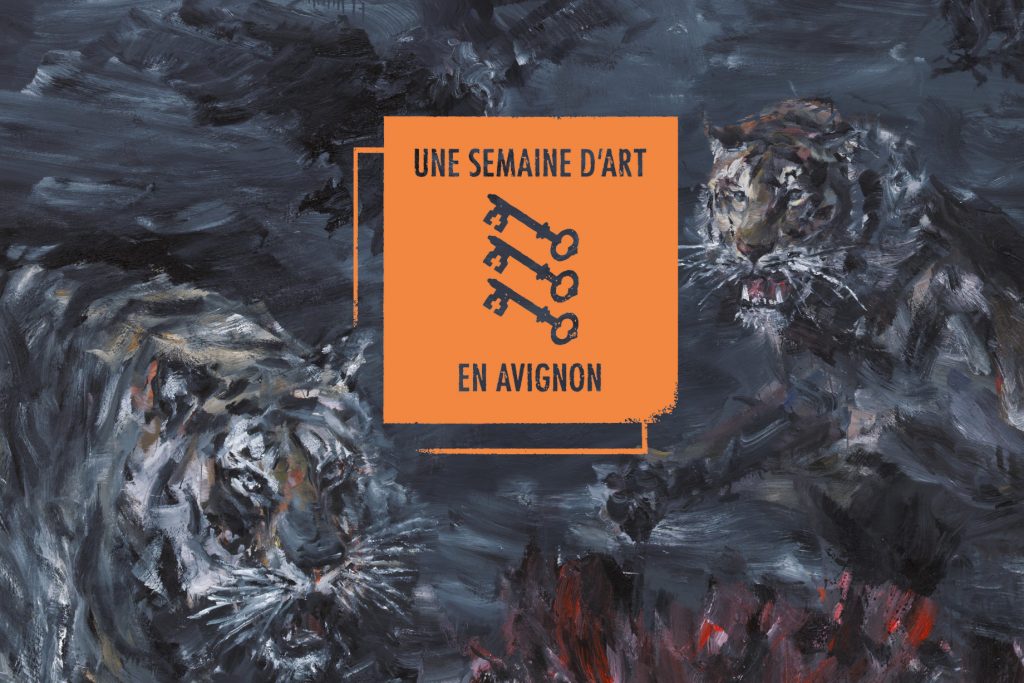Avignon Art Week – October 2020
The Avignon Art Week is a quote, a reference.
This was the first name given in 1947 by Mayor Georges Pons and Jean Vilar to the event that would become the Avignon Festival.
From October 23 to November 1st, 7 shows will be presented in a dozen places in Avignon and its surroundings.
After the cancellation of the Festival d’Avignon this summer, it seemed obvious and necessary to participate in an autumn of the performing arts, so that artists, on the front line of the CoVid health crisis that we are experiencing, can continue to create and meet their public.
Thus, La Semaine des arts was born from October 23 to November 1: ten days of theater, dance, concerts, surprising encounters and acoustic naps ….
The doors are wide open to artists from the region.
An Art Week in Avignon by Olivier Py, director of the Festival d’Avignon
When it was created, the Festival did not yet have the name “Avignon Festival”. Its name was more modest and at the same time more poetic: “An Art Week in Avignon”. Then the word Festival prevailed without Jean Vilar, its founder, absolutely subscribing to it. Later, he dreamed of returning to another title, using the term “encounters” which he conceived of as the center of Avignon’s vocation.
However, if “Une Semaine d’art en Avignon” was a somewhat vague dream that the enthusiasm of Vilar and his team won, all the fundamental ideas that will make the Festival were already at work: to change art. to change the world, change the link with the public to redefine democracy, invent a new theater and a new citizenship, and beyond defining the contours of decentralization, the public service of culture and the democratization of knowledge.
At the time of confinement and in the dismay of the cancellation, we imagined with the Festival teams to find this original and perhaps original idea. We had to go back to the beginnings since the epidemic had reduced to nothing the 74th edition, and symbolically save what we could of this magnificent program, articulated around desire and death.
It is not a question of finding the whole edition in October, but only of inviting certain events in a new device out of the bubbling of July. After all, the first edition of the Festival was not summer either. In this subtraction from the summer sun, we hope to rediscover some of the thought that inaugurated our Festival and this trip will allow us together, artists, teams and the public, to think about what makes Avignon exceptional.
What should we do and what can we hope for?
First of all, we must dream of another way of hosting these shows, simpler and more humble, and invite the public to come back to the theaters to participate in this new adventure as if there had not been more than sixty – ten years of Festival. We can hope to create another fidelity to our ideas, to the artistic requirement and to our duty to the spectators.
Does anyone really know what this week’s more intimate and freer energy will look like? More friendly and cheerful? More introspective and rich in debate? It is not for us to think about it entirely since it is the happy consequence of a catastrophe.
In the rooms that are now available to us – La FabricA, the Benoît-XII Theater, the Chapelle des Pénitents blancs, the auditorium of La Collection Lambert, the Socio-cultural Complex of La Barbière in Avignon, Le Tinel de la Chartreuse in Villeneuve lez Avignon, the Salle des Fêtes in Barbentane, the Multipurpose Hall in Saze and the Camille Claudel Cultural Pole in Sorgues – and in a city and a more peaceful and always beautiful roaming, it will also be an opportunity to think again and again the place of the public.
It may also be an opportunity to give the local public, already very present in July, another opportunity for pride and fervor. Far from the hustle and bustle of summer, this moment of meeting will perhaps be more discreet but also more free, informal and invigorating.
Avignon will not stop surprising us in its way of summoning the present.
This week undoubtedly responds to a wish of each and every one, to continue the Festival beyond itself and its customs. Let us therefore rejoice to see the city and the spectacles with this fresh outlook and do not waste unnecessary time in nostalgia for the cicadas. Even if the health standards will produce some constraints here and there, we will undoubtedly find reason to hope for a future of the theater beyond the pandemic.
In the simplicity of sharing and the love of art, everything begins, everything continues, everything is invented. Who knows what the theater gods have in store for us?
Olivier Py






